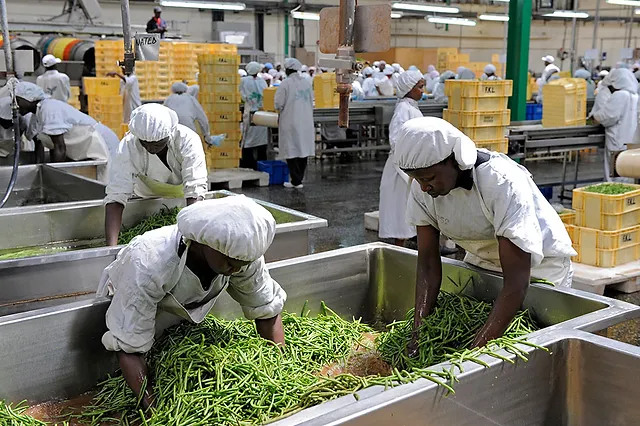No doubt, an important characteristic of the agro-food industry is its close association with the environment. Food production contributes to climate change, water scarcity and the destruction of biodiversity. Agro-food firms have to avoid environmental degradation as much as possible through pollution, erosion, greenhouse gas emissions and deforestation.
The first challenge facing the food industry is how to intensify production by reducing environmental impact and pressure on natural resources, while at the same time, producing safe products that allow people maintain a diet that ensures good health. The objective of firms is to promote a development model based on maintaining a balance between environmental, economic and social needs. The sustainability of agri-food production contributes to economic, social and environmental development and to flow in this direction, firms have to extend the re-use of materials, bioenergy, more efficient use of energy and water in the production processes of foods. In addition, policy-makers must stimulate the development of models for sustainable production that enable agro-food able to satisfy the present and future needs of society.
The second challenge facing the food industry is how to reduce serious health problems. In developed countries like the United Kingdom, an increasing number of people have health problems due to what is commonly referred to as lifestyle bordering on diet, physical activity, mental and emotional stress. People’s lifestyle underwent significant changes in the last decades and not much has changed today. Social and economic change, due to globalisation, has had a strong impact society resulting in pervasive changes in people’s eating habits and behaviours like eating out of the home, personalised diets, consumer preferences and e-commerce. Another challenge is to reduce toxic substances that results from ingredients used in production processes or that move from the environment to the food chain.
Great attention should also be paid to the understanding of emerging contaminants that are reported, but are not yet considered by law. To address this second challenge, it is necessary to use multidisciplinary strategies to be able to combine advanced technologies to offer safe products with basic consumers’ information. Food security is linked to innovation and sustainability of production systems and is perhaps the most important element of business competitiveness and this must cover all phases of the value chain from production to the final consumption. Another challenge is to become smarter in the organisation of firms’ activities by collecting and transforming more data into strategic and usable information to ensure greater rationality in taking economic decisions.
The third challenge is to improve firms’ ability to know how to fully exploit the generated information. From this point of view, the agri-food sector is positioned to take full advantage of information and communication technologies (ICTs) in all stages of the value chain for both specific activities and support activities. ICT in the agri-food industry aims to enable firms to become more and more efficient in realising managerial targets using data available throughout the value chain. This allows for a natural transformation of business models, better production processes and redefinition of relationships between members of the chain to increase productivity and achieve results.

